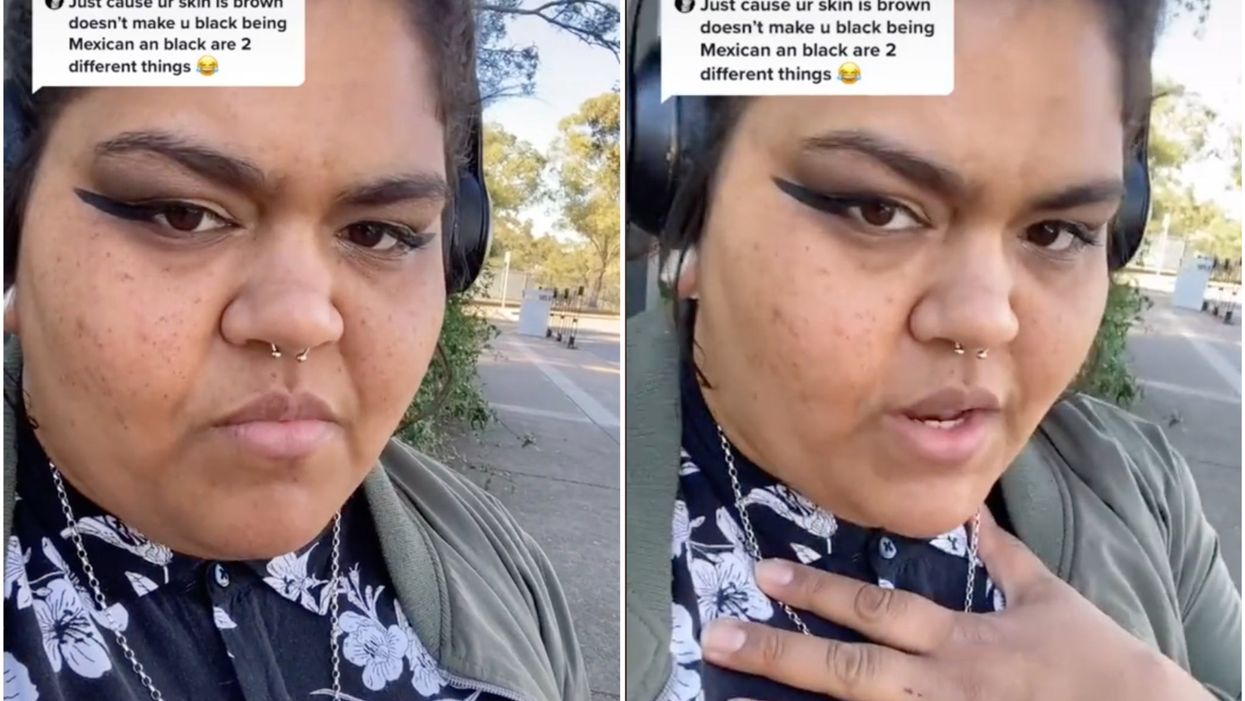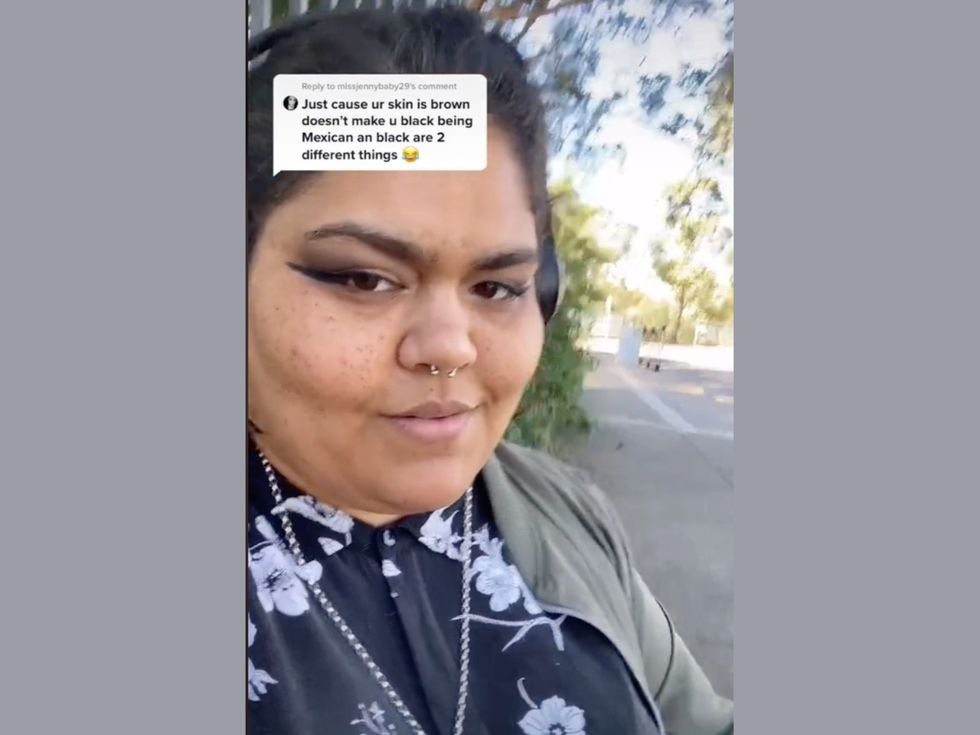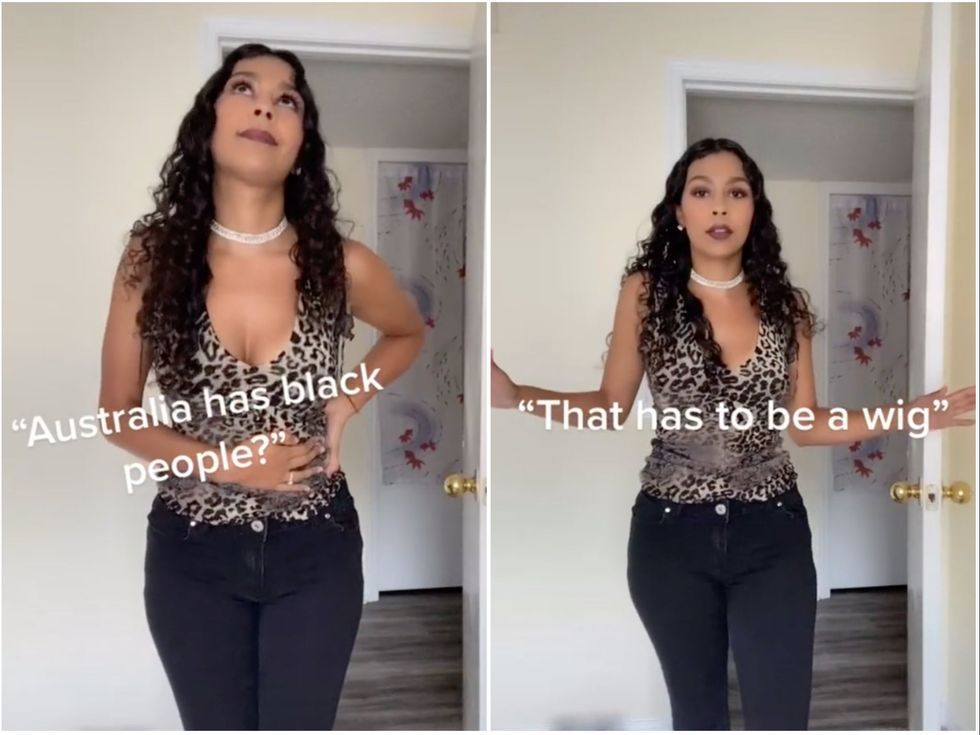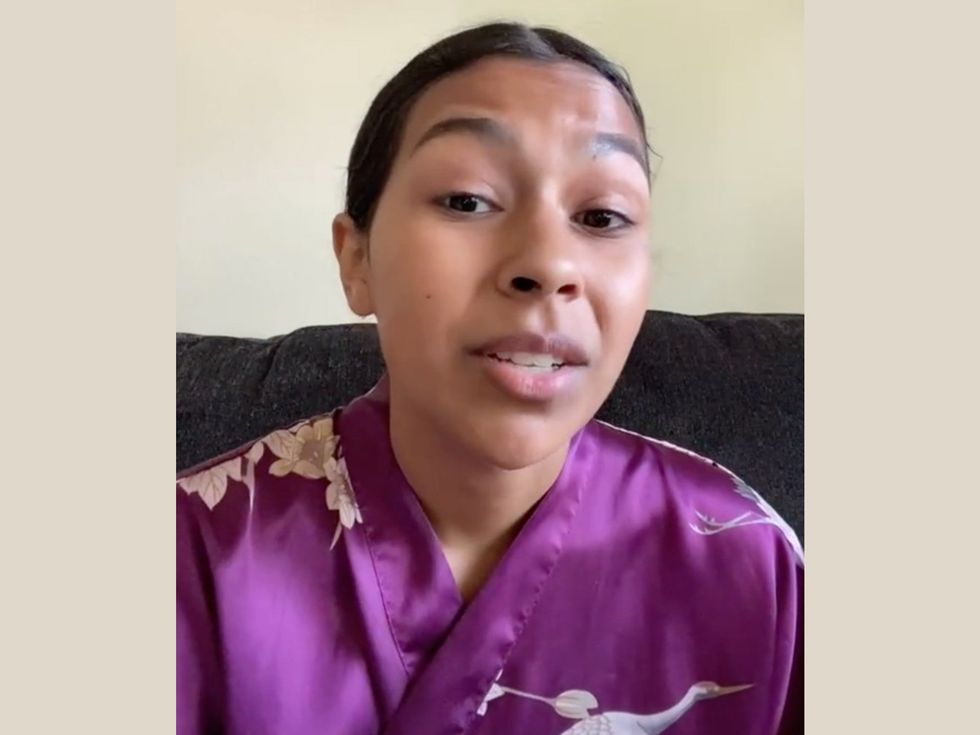Identities
Harriet Brewis
Jun 01, 2021

Emily explained that she identifies as Black
@howdoidelete1/TikTok
An Australian comedian has been forced to clarify her race after suffering a barrage of ignorant comments from TikTok users.
Emily, who is Aboriginal, issued a fierce rebuke aimed at “Americans and racist Aussies who still don’t have a f***ing clue” after fellow TikTokers refused to acknowledge her as Black.
She posted the video in light of a stream of comments from people confusing her with being Mexican.
These included a remark made by one US woman saying: “Just because your skin is brown doesn’t make you Black. Being Mexican and Black are two different things.”
Emily responded: “Aboriginal Australians, that's what I am – I’m not Mexican – we identify as Black. ‘Black fellas’.”
She then suggested that all US social media users seem to “assume everyone is in America” – implying that they struggle to grasp the existence of ethnic groups beyond those with which they are familiar.
She continued: “As Black fellas we also believe it's not the colour of your skin that defines your Blackness, because at the end of the day it doesn't matter how much milk you add to that tea, it's still going to be tea.
“Thank you very much, I hope that this serves as a public service announcement until the end of time on my account.”

The clip was viewed almost 300,000 times in six days, racking up more than 66,000 likes from users grateful for her candid statement.
One said: “I’m also Black but I’m too scared to talk about it since I’m pale [...] and don’t want Americans to attack me.”
Meanwhile an American TokToker responded that “Americans don’t teach about aboriginal Australians at all,” adding: “I’m 33, didn’t know y’all even existed till like a year ago.”
Elsewhere scores of US users shared their support for Emily and denounced the alleged ignorance of their compatriots.
One wrote: “Yes!! ‘Black’ people have brown skin in all shades.”
While another said: “Ugh, I’m ashamed of being American sometimes, and my hubby appreciates the tea remark.”

Emily’s statement came as US-based Australian singer Ashanta Eve Tolley revealed her own struggles against racism.
In her own TikTok video, she revealed some of the questions she has faced from people questioning her nationality and ethnicity.
These include comments like: “There are Black people in Australia?”; “You don’t look Australian”, and “Do you play didgeridoo?” as well as scepticism over her natural hair.
Still, Tolley suggested that the issues she encounters in her new homeland were nothing compared to the racism she experienced in Australia.
In a follow-up clip she said: “Unfortunately I have lived in several countries - Japan, South Korea, in the Middle East, and the US - and I have never been treated badly in any of those places except for Australia.
“I actually had someone make ape noises at me one day while I was wearing traditional attire.
“One day had a teacher spit on me, I've been followed around stores, you see dirty looks whenever you’re out in public, mainly from older white people.
“So yeah, I love Australia but I would never go back [there] to live.”

The musician then posted a third video insisting that education and calm discussion were the only ways to combat discriminatory and prejudiced views.
She said: “Please understand that not everybody is educated, they haven’t learnt about this stuff and they don't know. They have genuine questions and they just want to learn.
“If they are asking questions be respectful, give them the education, and if they are still ignorant or rude after that, then they have no excuse for it.
“But give them the education first before you say rude things back to them because you could literally change somebody’s life and their perceptions of an entire race of people that they never knew existed.”
What we’ve learnt from both women’s experiences is that the whole world still has a long way to go when it comes to understanding, and embracing, different identities.
Top 100
The Conversation (0)













